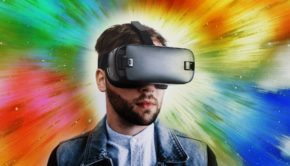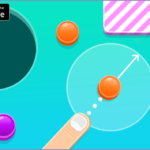Modern Education: Shifting the Focus to Life-Long Learning from Simple Knowledge Accumulation
Most individuals associate learning only with the formal education taught in schools, universities, and colleges. We were told from an early age that we need to ‘acquire a good education.’ We need to be taught and master skills to read and memorize information, write essays and research papers, speaking skills, etc.
Indeed, formal education is essential. It can maximize the potential to get better and more satisfying jobs, earn a lot, and probably become successful in life. It is also easy to get help with it by using online paper writing services where one can pay for essay cheap and not worry about getting good grades.

However, formal education is one type of learning. There are various opportunities, such as lifelong learning, to further your knowledge and develop new skills you will need throughout your life.
Lifelong learning is simply the process of acquiring knowledge and getting skills throughout life. Most people continue their education for their personal development and fulfillment. On the other hand, others see it as an essential step toward their career advancement.
Lifelong learning is defined as the development potential in humans through a continuous and supportive process that empowers people to get skills, knowledge, and values. It involves understanding what they will need throughout their lifetimes and applying them with creativity, confidence, and enjoyment in all circumstances, roles, and environments.
Shifting the Focus to Life-long Learning from Simple Knowledge Accumulation
The lifelong process was initiated as a concept in the 70s as an outcome of 3 international bodies. The OECD (Organisation for Economic Co-operation and Development) called for recurrent education, an alternation of full-time work alongside full-time study similar to sabbatical leaves.
The Council of Europe recommended for permanent education, the plan to reshape education in Europe. The third initiative was the UNESCO report, Learning to be, in 1972, which drew substantial attention and had a significant influence. This report foresaw lifelong education as a transformative and emancipatory force for both the schools and society.
The interest in lifelong learning was resuscitated in both Europe and the US in the early 1990s. New studies and reports popularised the lifelong learning idea, and it became one of the national policy ideas. In the full-time employment economy, the corporations perceived advantage from investment in human capital.
Meanwhile, the new workforce of the knowledge technologists anticipated their employers to maintain employability by significantly investing in studies. As a result, the focus of learning shifted to human resource development from personal growth. On the other hand, the training and education approaches became central to a transition away from unemployment and welfare dependency.
Concept and Mission of Lifelong Learning
Gone are the days when learning was limited to specific age groups and life periods, but it should be seen as a ‘continuum.’ Lifelong learning encompasses the need to adapt to learning requirements as a response to the economic demands and the ability of people to retain mastery of their destinies. Lifelong learning needs to be guaranteed through certain flexible types of education that offer equal opportunity to all students.
Knowledge accumulation is at high speed at an exponential pace. Remarkably, the rapid increase is made clear by the lifetime manufacture of items which are getting shorter than in the past, at least for various industrial sectors. Furthermore, the interaction between humans and machines will become new issues for the labor force. This relation will be increasingly based on knowledge use; hence, the professional skills need to be adapted.
Significant Examples of Lifelong Learning
Below are various types of lifelong learning initiatives to engage in:
- Self-taught study – such as subscribing to a podcast, researching the topic of interest, or learning a new language;
- Developing new skills – such as programming, web design, cooking, sewing, and public speaking;
- Acquiring new knowledge – like taking a classroom-based course or self-interest course through online learning;
- Learning new activities or sports – such as learning to ski, joining martial arts, etc.;
- Learning to use new technology.
How to Adopt a Lifelong Learning Process in Your Life
Recognize Your Interests and Goals
Lifelong learning is not about those around you and what they want; it is about you. Check what you like and what you envision for your future.
Make a List of What You Like
After identifying what you like the most, check the specific interest and goal you intend to achieve.
Identify the Way You Like to Get Involved and the Available Resources
Achieving personal goals starts with figuring out how to get started. Researching your interests and goals can be of significant help to formulate how to go about learning them.
Be Sure to Structure the Learning Goal into Your Life
Fitting your learning goal into your busy life requires consideration and a lot of effort. If you don’t have time and space for it, it can’t happen. Ensure that you plan how the requirements of the new learning initiative can be structured into your life. Understanding the amount of time and space to devote to your learning goal can help to stick with your goal in the long-run.
Make Commitments Towards the Learning Goal
Committing your decision to engage in the new learning initiative is the most significant step. If you set realistic expectations and have the motivation to see it through, commit to it, and don’t make excuses!
Whether you are chasing professional ambitions or pursuing personal passions and interests, lifelong learning can help you achieve full satisfaction. Human beings have an innate drive to explore, study, and grow. Long-life learning encourages everyone to improve their life quality by paying attention to goals that inspire them.











![Buying an external hard drive [Infographic]](https://technofaq.org/wp-content/uploads/2020/09/what-to-look-for-when-buying-an-external-hard-drive-header-150x150.jpg)




